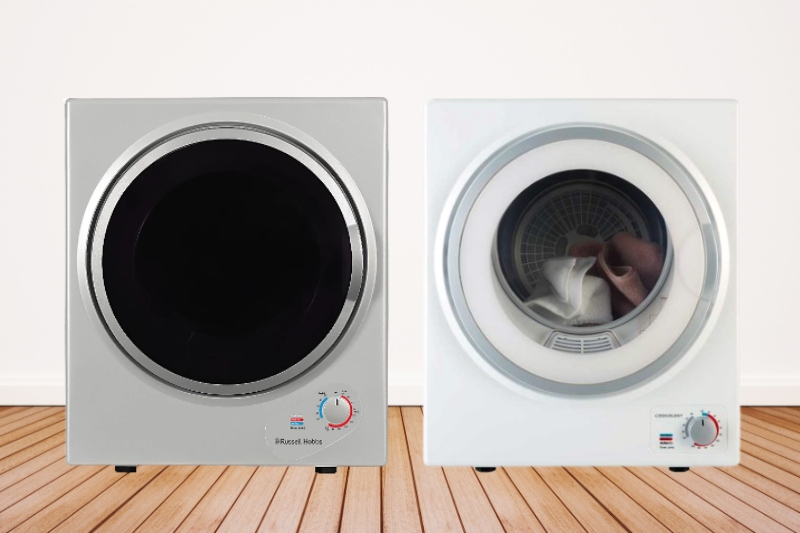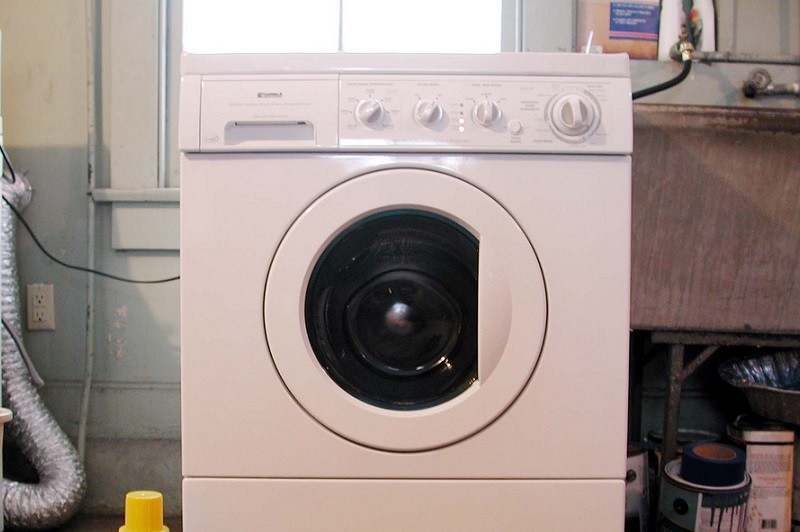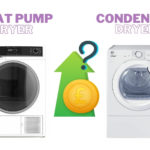Tumble dryers are a vital appliance if you don’t have an outdoor space for drying your clothes.
Condenser tumble dryers are very convenient as they don’t require venting, so they are easier to install and you have more flexibility with where you can put them.
If you have limited space, you might be looking for a compact tumble dryer. But what’s the smallest condenser tumble dryer on the market?
In this article, we’ll look to answer the question.
What Is the Smallest Condenser Tumble Dryer?
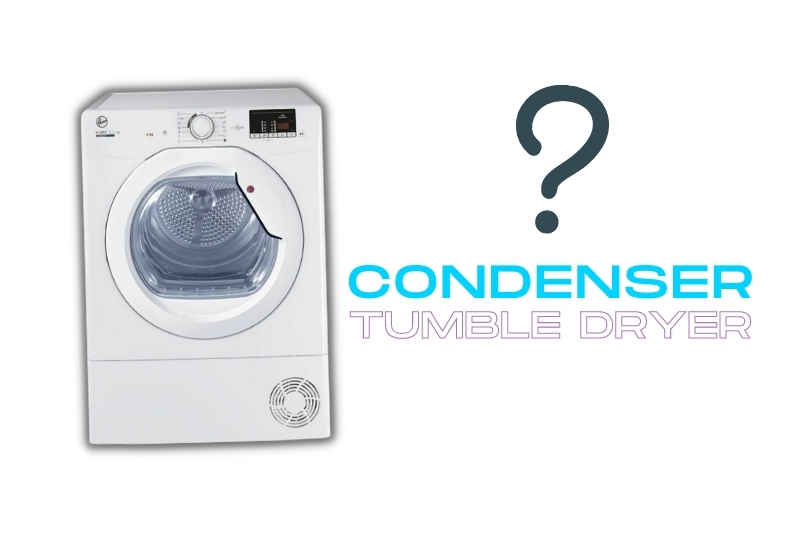
Unfortunately, all condenser tumble dryers on the market in the UK are the same standard size, give or take a few millimetres. They are designed to fit in a space that is 85 cm high by 60 cm wide and 60 cm deep.
Unlike with washing machines, you can’t get a slimline tumble dryer.
Compact tumble dryers are available, and are often around 59 cm high by 49 cm wide and 42 cm deep. However, they are all vented dryers rather than condenser models.
The smallest drying capacity for a condenser tumble dryer is 7 kg, but these models aren’t actually any smaller than models with a larger drying capacity, it’s just that the drum can hold less clothes.
Using a Mini Tumble Dryer without Venting it Outside
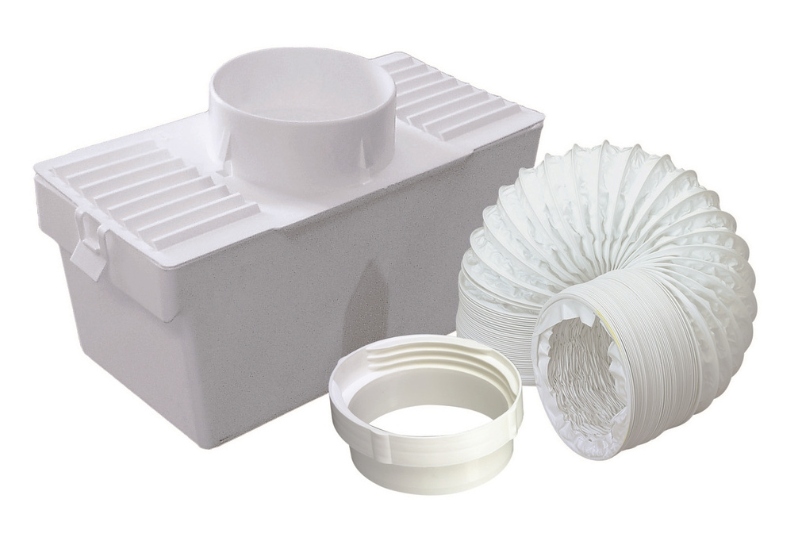
Mini condenser tumble dryers don’t exist, but you could use a mini vented dryer as a condenser dryer with the help of a condenser box.
You would connect the hose from the tumble dryer to the condenser box, which would collect the moisture.
Things to Consider when Choosing a Condenser Tumble Dryer
Capacity
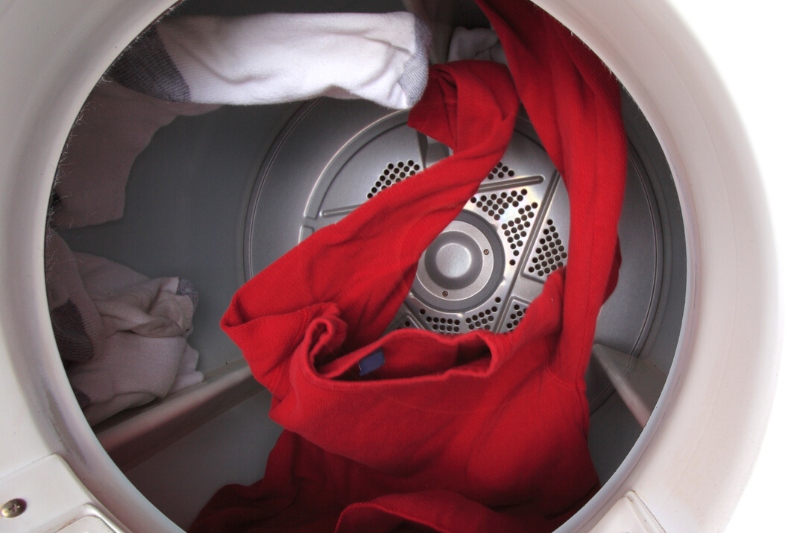
Condenser tumble dryers range in drying capacity from 7 kg to 10 kg and above.
Bear in mind that the capacity refers to the weight of the washing when it’s dry.
Generally, you’ll want to aim for a tumble dryer that has the same (or larger) capacity as your washing machine. Doing so means you can just dry a full load every time.
Energy rating
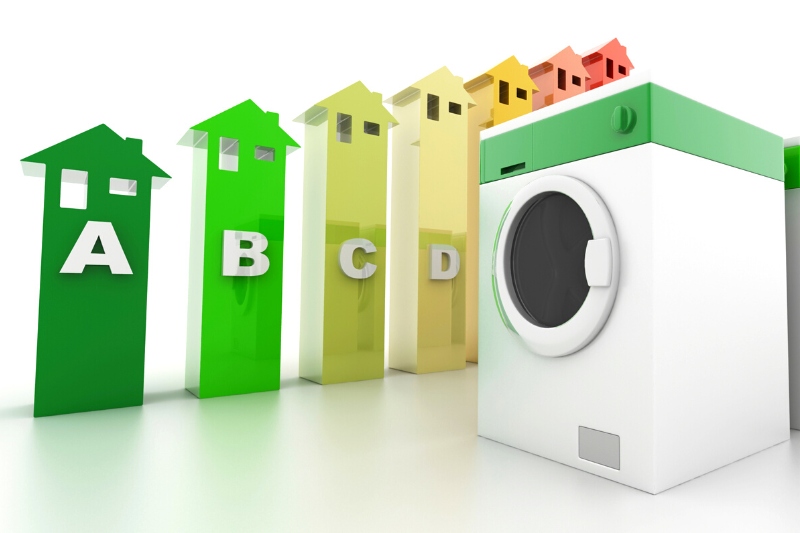
Most condenser tumble dryers have a B energy rating. The difference between an A and B energy rating is fairly minor, meaning they’re still pretty efficient appliances.
Some websites will give you a rough idea of how much each appliance will cost to run based on current energy prices.
This can be helpful for making your decision, but the appliance’s purchase cost should be a more important metric.
After all, if a tumble dryer that’s £30 more expensive costs £1.50 less a year to run, it’s going to take 20 years to make your money back!

Jacob is a writer based in Wales, where he lives with his partner and two dogs. All his work is fuelled by extensive research and buckets of coffee.
